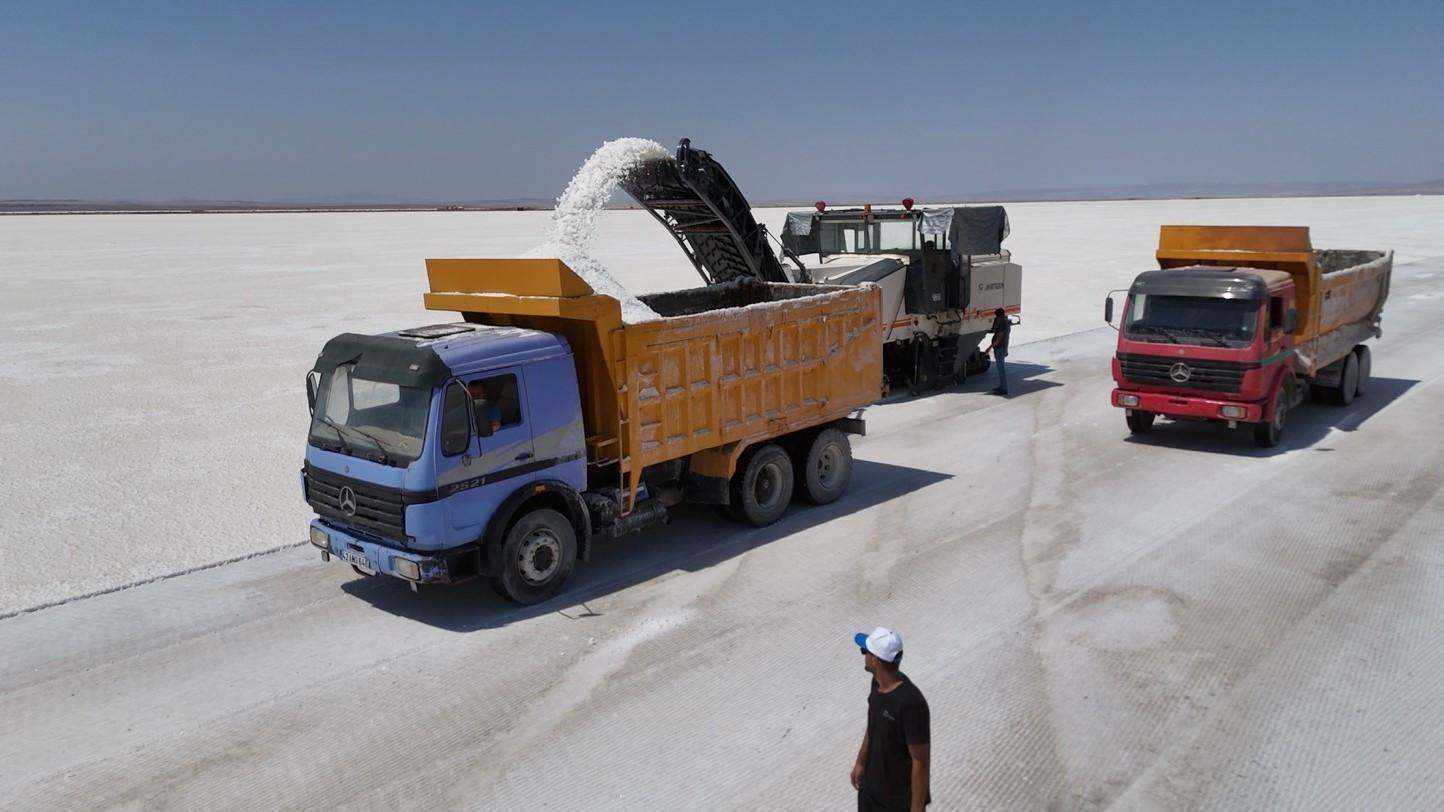ANKARA

Türkiye’s vast Tuz Lake, the country’s largest salt reserve, stands out for producing salt free of microplastic contamination, a distinction that has bolstered its reputation both at home and abroad.
Unlike sea salt, which is often exposed to plastic pollution, the lake’s closed basin and lack of connection to any sea prevent microplastic infiltration, allowing for a natural and cleaner harvest.
Located about 150 kilometers from the capital Ankara, Tuz Lake is Türkiye’s second-largest lake and a vital ecosystem that also hosts rare bird species, including flamingos.
The salt forms naturally through intense evaporation during summer months, crystallizing before being harvested, washed, dried and processed into various granule sizes.
Mert Günay, the deputy general manager of a salt company, emphasized the uniqueness of Tuz Lake’s production. “Since our lake is not connected to the sea, it is not exposed to microplastic waste found in marine salts. This enables us to produce cleaner and higher-quality sait for both domestic and export markets,” he said.
Günay added that the harvested salt is not only packaged for household use but also serves industries such as food, pharmaceuticals, textiles, chemicals and leather.
Supplying nearly 70 percent of Türkiye’s salt needs, Tuz Lake also exports to over 50 countries across five continents.
Beyond its economic significance, the lake is part of a UNESCO cultural heritage site and sustains a fragile ecosystem, where microorganisms like Artemia salina support a large flock of flamingos.
